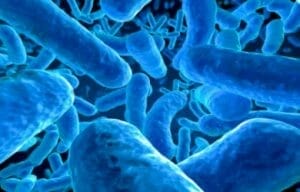
According to BBC News – The world is on the cusp of a “post-antibiotic era”, scientists have warned after finding bacteria resistant to drugs used when all other treatments have failed.
They identified bacteria able to shrug off the drug of last resort – colistin – in patients and livestock in China.
They said that resistance would spread around the world and raised the spectre of untreatable infections.
It is likely resistance emerged after colistin was overused in farm animals.
Bacteria becoming completely resistant to treatment – also known as the antibiotic apocalypse – could plunge medicine back into the dark ages.of
Chinese scientists identified a new mutation, dubbed the MCR-1 gene, that prevented colistin from killing bacteria.
The report in the Lancet Infectious Diseases showed resistance in a fifth of animals tested, 15% of raw meat samples and in 16 patients.
The resistance was discovered in pigs, which are routinely given the drugs in China.
And the resistance had spread between a range of bacterial strains and species, including E. coli, Klebsiella pneumoniae and Pseudomonas aeruginosa.
There is also evidence that it has spread to Laos and Malaysia.
Prof Timothy Walsh, who collaborated on the study, from the University of Cardiff, told the BBC News website: “All the key players are now in place to make the post-antibiotic world a reality.
“If MCR-1 becomes global, which is a case of when not if, and the gene aligns itself with other antibiotic resistance genes, which is inevitable, then we will have very likely reached the start of the post-antibiotic era.
“At that point if a patient is seriously ill, say with E. coli, then there is virtually nothing you can do.”
However, the crucial difference this time is the mutation has arisen in a way that is very easily shared between bacteria.
“The transfer rate of this resistance gene is ridiculously high, that doesn’t look good,” said Prof Mark Wilcox, from Leeds Teaching Hospitals NHS Trust.
His hospital is now dealing with multiple cases “where we’re struggling to find an antibiotic” every month – an event he describes as being as “rare as hens’ teeth” five years ago.
Source : http://www.bbc.com/news/health-34857015
The World Health Organisation and the European Union have identified antimicrobial resistance as a major crisis facing the health systems of all countries – what homoeopathy can offer?
The pharmaceutical industry is struggling to find new antibiotics to replace failing older products. The European Centre for Disease Prevention and Control estimates that antimicrobial resistance (AMR) results in 25,000 deaths every year with related costs of over €1.5 billion in healthcare expenses and productivity losses in Europe. Widespread use of antibiotics in the animal food industry is considered to be a major contributor to the rise in resistance.
THE SOLUTION – The Society of Homeopaths UK
In the light of this crisis and in order to reduce the use of antibiotics, The Society of Homeopaths would like to see serious consideration being given to the use of homeopathy as an alternative to antibiotics. We consider that there is evidence and practical experience that homeopathic medicine can contribute to reducing the need for antibiotic use by offering effective alternatives.
The Society’s paper provided evidence-based suggestions for the role homeopathy might play. It outlined how Homeopathy is a demonstrably effective treatment option for a range of human infectious diseases, and suggested that:
- Homeopathic treatment can be at least equivalent to antibiotics for certain human infectious diseases
- Homeopathy can offer an effective alternative to non-essential antimicrobial use in animal husbandry
- Homeopathy has a robust track record of controlling, managing and preventing outbreaks of infectious diseases on a large scale
- Homeopathy provides rich potential for the development of novel antimicrobial therapies and is not susceptible to the problems of developing microbial resistance. It deserves adequate research funding and support.
The full paper can be accessed here:
http://data.parliament.uk/writtenevidence/committeeevidence.svc/evidencedocument/science-and-technology-committee/antimicrobial-resistance-amr/written/3317.html
The Homeopathic Research Institute (HRI) also submitted evidence, focusing on two specific ways in which homeopathy could be used to reduce the use of existing antibiotics: 1) as an additional first line treatment for acute otitis media in children, and 2) as an alternative to the large-scale routine use of antibiotics in farm animals. Their submission can be accessed here:
http://data.parliament.uk/writtenevidence/committeeevidence.svc/evidencedocument/science-and-technology-committee/antimicrobial-resistance-amr/written/3410.html
Read Source article :
http://www.homeopathy-soh.org/215-who-antibiotic-awareness-week-16-22-november-2015

Be the first to comment